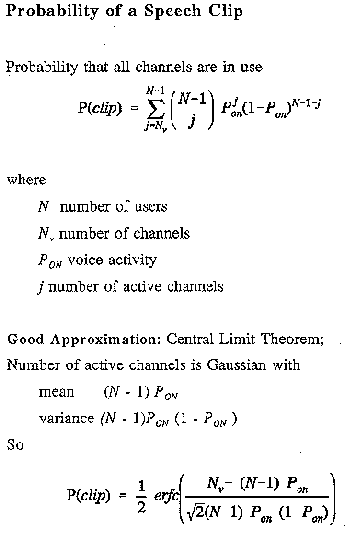
Digital Speech Interpolation (DSI)
Time Assigned Speech Interpolation (TASI) or DSI exploits the fact that human speech signals contain periods of activity and periods of silence.
This allows an operator to multiplex N telephone conversations over Nv channels, where N can be larger than Nv.
The basic idea is that a conversation only needs to occupy
a channel whenever the speakers voice is generation a sound.
During periods of silence, other users can use the channel.
For TASI or DSI on satellite links, freeze-outs are caused by the competition among signals from various subscribers due to statistical multiplexing of multiple voice signals. Statistical multiplexing of voice signals in personal communication networks has been proposed by Goodman et al. in PRMA.
(see the speech page for models on speech activity and silence)
Derivation of Probability of Freeze Out

DSI is used for instance in PRMA and STRMA.
If all channels are occupied, new speech talk spurts are clipped.






